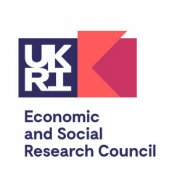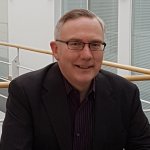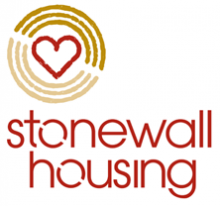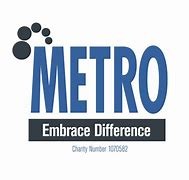
Intergenerational Exchanges in LGBTQ+ communities
Start date
September 2022End date
February 2024Overview
Intergenerational disconnection is a problem across society. However, through a CILIA-LGBTQI+ study on intersectional life course inequalities, it has been discovered that this is particularly the case among LGBTQ+ people, whose ‘families of choice’ are often peer-group-based, without descendants and less likely to include members from their ‘family of origin’.
When people from different generations have insufficient opportunity to communicate and understand each other’s perspectives and experiences, research has found that this can lead to: divisive stereotyping and misunderstanding about other generations; ageism and fear of one’s own ageing; insufficient transmission of cultural memory and cultural understanding of shared histories; and less connected communities.
In this ESRC IAA-funded project, the team is collaborating with LGBTQ+ charitable organisations that specialise in supporting LGBTQ+ communities in the local region, to establish how best to facilitate interventions that bring different generations together. A framework of ‘queer generations’ may be better suited for facilitating effective intergenerational exchanges based around empathy, difference, and parallel experiences of inequality and this will be explored through interventions, to enable LGBTQ+ people to narrate and reflect on their generational identity in an intergenerational setting.
Team

Co-investigator
Professor Andrew King
Head of Sociology, Professor of Sociology
Biography
I am Head of Sociology and Associate Head of the School of Social Sciences here at Surrey. I am Co-Director of the Centre for Research on Ageing and Generations (CRAG), the Centre of Excellence on Ageing (CEA) and I also Co-Chair SGS (the Sex, Gender and Sexualities Research Group at Surrey). I lead the University of Surrey Economic and Social Research Council Impact Acceleration Account.
I have been recognised for my excellence in both research and teaching. In 2018 I received the Vice-Chancellor's Award for Research Excellence and I received the Vice-Chancellor's Award for Teaching Excellence in 2014. I am a Senior Fellow of the Higher Education Academy.
I am currently Deputy Editor of the journal, Ageing and Society and a Co-Editor of Sociology, the journal of the British Sociological Association.
During 2023/4 I was a Visiting Professor in Equality, Diversity and Inclusion at Trinity College Dublin.

Co-investigator
Dr Helen Kingstone
Lecturer in Nineteenth Century Literature (Royal Holloway University London)
See profilePartners
This ESRC IAA Project is a partnership between The University of Surrey, Metro Charity, Tonic Housing, Stonewall Housing and Opening Doors.
Intergenerational LGBTQ+ Toolkit
Our Intergenerational LGBTQ+ Toolkit offers evidence-based recommendations for running intergenerational workshops with LGBTQ+ staff, members, volunteers and/or service users of your organisations.
Details of how to setup the workshops are presented in the toolkit as well as guidance for activities, recommended timings, additional resources, and further tips for how you can adapt aspects of the workshops to fit your organisation’s needs/constraints.
How to access the toolkit
The Intergenerational Exchanges in LGBTQ+ Communities Toolkit is free to use, but we ask you to have regard for the following conditions of its use:
Do not distribute this document to anyone else outside of your organisation – if anyone asks for a copy, please direct them to this web page so they can download it.
If you use this document or any part of it, we would be grateful if you would please:
Acknowledge the authorship team
- Send us any comments/suggestions that you feel might improve the document so that your experience can be incorporated into subsequent updates. These can be sent to Professor Andrew King (andrew.king@surrey.ac.uk).
Planned Impact
Through this project, multi generational LGBTQ+ people and our charitable partner organisations will gain new insights into what is needed to successfully enhance intergenerational communication and connection.
For LGBTQ+ workshop participants
A greater sense of intergenerational community, confidence in navigating intergenerational exchanges productively, and greater understanding of the perspectives of members of other generations is anticipated.
For partner organisations
Partners will learn about their members’ sense of generational identity, the extent to which they feel represented by or disconnected from cis-heteronormative generational discourse, and their sense of intergenerational connectedness or otherwise.
For the project team
The project team will learn about the value of the co-produced creative intergenerational intervention and will adopt best practice going forward.

